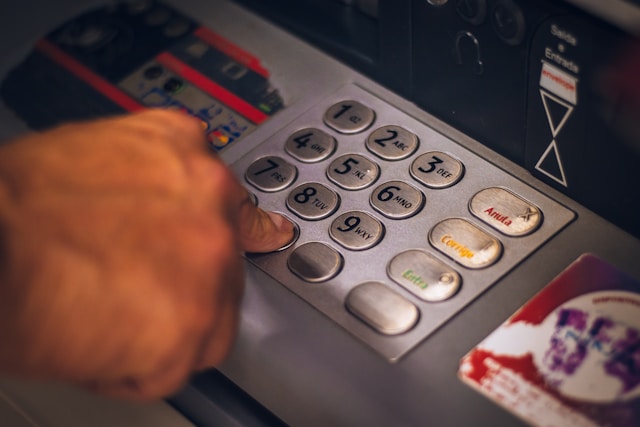The Rise of Open Banking in Africa

Udokanma Georgewill
September 25, 2024

Sometimes people are skeptical about sharing their details with financial institutions, but what if doing so could give you access to better services and tools to manage your money? That’s the idea behind open banking. It lets you securely share your banking information like account balances and transaction history, in a secure way with trusted companies to get more personalized financial help. In Africa, this approach transforms how people handle their finances, opening doors to new opportunities. So, how does it work, and what could it mean for the future of banking here?
How Open Banking Works
Open banking lets customers decide to share their financial information, such as their spending history or account balances, with other companies. These companies use special technology, APIs (Application Programming Interfaces), to securely access this data. Customers stay in control and must agree before their information is shared.
Companies that receive this data, called third-party providers (TPPs), can use it to offer services that are personalized, like helping people manage their money better or offering new ways to make payments. Banks and financial technology companies (fintechs) work together to create services that fit the needs of different people and businesses. This openness also encourages healthy competition among financial institutions, pushing them to make products that better serve their customers.
Why Africa Needs Open Banking
Open banking can help more African people access banking services, especially those without accounts, by allowing fintech companies to use customer data to create affordable financial products. This opens up new ways for underserved communities to save, borrow, and manage money. It also encourages innovation, enabling fintechs to develop customized solutions. As banks and fintechs compete, consumers benefit from better services, lower costs, and more choices, building on the success of mobile money.
Subsequently, with open banking, people can view all their financial information in one place, making it easier to manage their money. It also speeds up payments and makes transfers smoother. On top of that, it offers personalized financial advice. Open banking uses secure technology to share data, allowing customers to control who accesses their information and stop sharing it anytime. This makes banking safer and reduces the risk of fraud and identity theft.
Obstacles to Open Banking in Africa
While there is an untapped potential in open banking within the fintech sector, it is imperative that we also discuss why it may not achieve complete success in this part of the world yet.
- Open banking requires clear rules to protect consumers and promote fair competition. In many African countries, these rules are still being developed. Governments should create strong guidelines on data privacy and security to prevent delays in adopting open banking.
- For open banking to work, reliable internet and technology are needed. In some parts of Africa, poor internet coverage and outdated technology may slow down progress. Additionally, building trust with customers is crucial, as many are unfamiliar with open banking. Educating people on how their data will be used and protected is essential for success.
Countries Championing Open Banking in Africa
While open banking is still in its early stages in Africa, several countries have taken notable steps towards implementing it. These initiatives highlight how open banking can drive innovation, financial inclusion, and economic growth on the continent.
South Africa
South Africa is ahead in open banking, with digital banks like Bank Zero offering zero-fee services by connecting with third-party apps. Fintechs like Yoco help small businesses manage their finances using real-time transaction tracking. The South African Reserve Bank is also working on regulations to support open banking growth.
Nigeria
Nigeria’s fintech sector is booming, with companies like Mono and Okra offering secure ways for businesses to access customer financial data. The Central Bank of Nigeria has set guidelines for open banking, making data sharing safer and easier. This is expected to boost access to loans, especially for small businesses.
Kenya
Kenya, famous for mobile money platforms like M-Pesa, is using open banking to link mobile wallets with traditional banks. Companies like PesaLink enable instant bank transfers, and initiatives like FSD Kenya focus on expanding access to affordable banking services, particularly in underserved areas.
Ghana
The Bank of Ghana is creating rules to support open banking, with the GhIPSS platform connecting banks, mobile money, and fintechs. Zeepay, a Ghanaian fintech, uses open banking to simplify money transfers, improving cross-border payments and financial access for those living abroad.
Egypt
Egypt is working on open banking as part of its digital strategy. Fintechs like Paymob and Fawry allow businesses to integrate multiple payment solutions, making digital transactions easier. The Central Bank of Egypt is promoting collaboration between banks and fintechs to increase access to financial services and improve financial literacy.
How Open Banking Could Impact Africa’s Financial Industry
Open banking has the potential to reshape Africa’s financial sector by improving access to banking services, encouraging innovation, and enhancing customer experiences. The right approach could drive growth and create a more inclusive economy in Africa.
Small and Midsize Enterprises (SMEs), which are vital to Africa's economy, often struggle to get loans. Open banking can help by allowing lenders to see more detailed financial data, making it easier to offer loans to small businesses.
Africa leads in mobile money services like M-Pesa, and open banking can work with these services to make it easier for people to move money between banks and mobile wallets. It can also speed up cross-border payments, helping trade between African countries grow.


